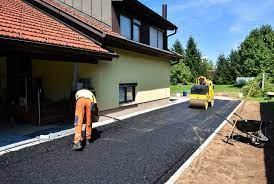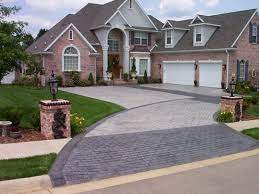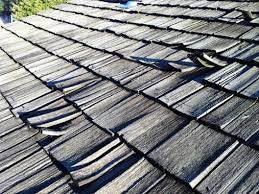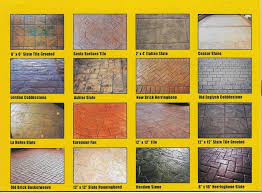Choosing the Right Driveway Material: Factors to Consider

Making the right driveway material choice is important for homeowners because it has an impact on the functionality, longevity, and curb appeal of the driveway as well as other aspects of the property. The choice of the best driveway material can be difficult given the wide range of options currently on the market. In this blog, we’ll look at the crucial elements that homeowners should take into account when choosing the ideal driveway material to fit their needs, tastes, and budget.
1. Weather and Climate Conditions
The climate and weather in your area are very important factors in choosing the best driveway material. Concrete and asphalt are suggested materials for regions with extreme temperature swings and harsh winters because they can withstand freeze-thaw cycles. These materials have exceptional tensile strength and resistance to thawing-induced cracking. In contrast, materials like gravel or permeable pavers may be more useful in warmer climates because they improve drainage and reduce water damage.
2. Financial and Cost Factors
Your financial situation plays a big role in the choice you make. Different driveway materials have a range of costs associated with installation and upkeep. Compared to more expensive options like natural stone or interlocking pavers, asphalt and concrete are frequently more cost-effective. To ensure a driveway that is both affordable and aesthetically pleasing, it is crucial to strike a balance between your desired aesthetics and your budget.
3. Longevity and Robustness
Given the weight and traffic it will experience over time, the longevity and durability of the driveway material are crucial. They are perfect for long-lasting driveways because they are known for their durability and capacity to withstand heavy loads, such as concrete, asphalt, and interlocking pavers. However, due to wear and erosion, materials like gravel may need more frequent upkeep and resurfacing.
4. Requirements for Upkeep
Different types of driveway materials require different levels of maintenance. For example, asphalt may need to be resealed every few years to maintain both its aesthetic appeal and structural integrity. To keep water from seeping into concrete, cracks may occasionally need to be sealed and repaired. To fill in potholes and keep a smooth surface, gravel driveways may require routine gravel replenishment. Making an informed choice that fits your lifestyle and time constraints requires an understanding of the maintenance requirements of each material.
5. Home Design and Aesthetics
Since it has a direct effect on the overall aesthetics of your home, the aesthetic appeal of your driveway is an important factor to take into account. Different materials have distinctive appearances, from the timeless allure of cobblestone to the unadulterated beauty of gravel. The overall curb appeal of your property is improved by choosing a driveway material that blends in with the architecture and landscaping of your home.
6. Installation Methodology
Your decision regarding the driveway material may also be influenced by how difficult the installation process is. For the proper installation of some materials, such as concrete and asphalt, a professional’s knowledge and specialized tools are needed. Others, like gravel or interlocking pavers, might be better suited for do-it-yourselfers or homeowners seeking installation procedures that are less complicated.
7. Eco-Friendliness
Consider choosing more environmentally friendly driveway materials if environmental impact is a top priority. For instance, permeable pavers permit groundwater recharge by allowing rainwater to seep into the soil and reducing stormwater runoff. Additionally, gravel driveways offer permeability, allowing water to naturally drain, which is good for the environment.
8. Surface Texture and Noise
Think about how the driveway’s construction will impact both surface texture and noise levels. When cars drive over some surfaces, like gravel, more noise may be made, whereas concrete and asphalt typically have quieter surfaces. Consider whether a smooth or textured surface best suits your requirements and tastes.
9. Regional Rules and Permits
Check local laws and permit requirements before deciding on the driveway material. Certain materials may be subject to limitations in some places, and certain driveway installations may call for permits. You can avoid future legal troubles and extra expenses by being aware of and abiding by local laws.
In addition to material selection, professional concrete company possess the skills and equipment to ensure precise and proper installation, minimizing the risk of future issues and costly repairs. Their expertise in grading, compacting, and sealing techniques guarantees a durable and aesthetically pleasing driveway that will withstand the test of time.
Conclusion
The right driveway material should be chosen carefully after carefully weighing a number of factors, including the climate, budget, durability, maintenance, aesthetics, installation process, environmental impact, and local regulations. You can make an informed choice that fits your lifestyle and improves the overall appeal of your property by weighing the pros and cons of each material.
The ideal driveway material should, in the end, not only be aesthetically pleasing but also strong, low-maintenance, and appropriate for the climate in your area. You can design a lovely and useful driveway that welcomes guests and increases the value of your home for years to come by carefully evaluating your priorities and seeking professional advice, learn more about Venture Concrete Charleston.






